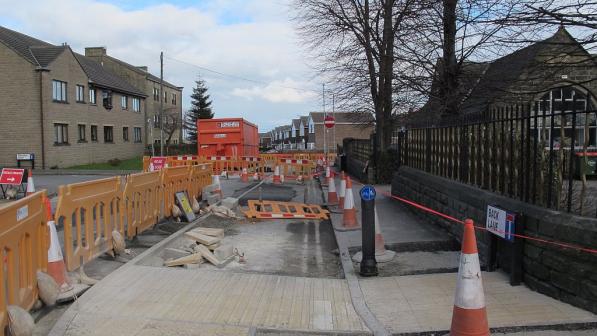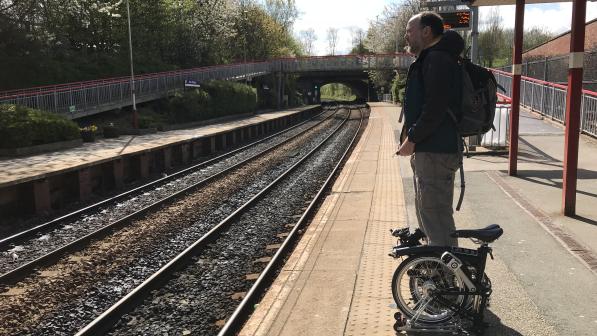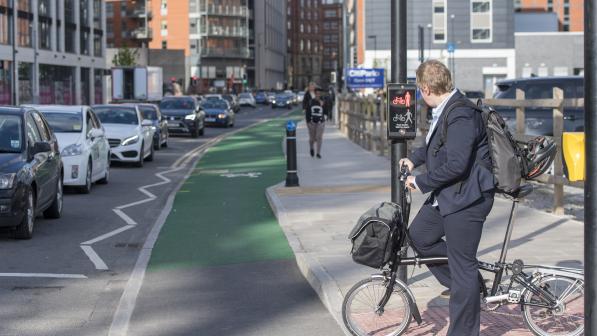Will transport become decarbonised?

When I woke up for another day working remotely last Friday, I didn’t expect to read something from the Transport Secretary Grant Shapps admitting that the UK Government needed to “dramatically increase investment in cycling and walking”.
He had my attention, because Cycling UK has been asking the Government to show us the money for active travel for at least the last eighteen months, but the purse has remained closed, with last month’s Westminster budget doing nothing to ‘get cycling done’.
Decarbonising Transport
A cynic might say that this was merely a more direct admission of something the Government has known for a while, however, accepting that actions speak louder than words, I was nevertheless relieved to see this stated publicly and unequivocally in a document published by the Department for Transport (DfT) called 'Decarbonising Transport: Setting the Challenge.'
Here’s where things get a bit fuzzy, at least as far as active travel is concerned, because the document is the first step towards publication of a Transport Decarbonisation Plan (TDP) later this year.
Within the Ministerial Foreword, Grant Shapps acknowledges that climate change is the most pressing environmental challenge of our time, and there's a need for action. But quite aside from any imperative to do the right thing, the Government has also committed to the UK reaching net zero by 2050 and is bound by the Climate Change Act 2008 which also applies across the whole of the UK. Some aspects of transport however, including roads investment and spending on cycling and walking, are devolved matters for the governments in Scotland, Wales and Northern Ireland. Put crudely, as part of it’s UK wide commitments the DfT is producing a Transport Decarbonisation Plan which as far as active travel is concerned directly relates to England, but it’s probably fair to say that as the policy driver is the reduction of carbon emissions, the document has wider significance for policy and decisions across the UK.
Dramatic increasing investment – words or action?
It wasn’t just the words about needing a dramatic increase in cycling and walking investment that grabbed my attention however. There were other bold statements, which again I welcome and will come to shortly, but it pays to draw breath and reflect that we’ve sort of been here before, and well done is better than well said. You see, I remember publication of the Government’s Cycling and Walking Investment Strategy (CWIS) almost three years ago. The vision to make cycling and walking the natural choice for shorter journeys was there, and it was hard to fault the aspirations, but an investment strategy needs adequate investment to enable delivery.
With the CWIS investment has always been missing, which is why the Government aren’t achieving their targets to increase levels of cycling and won’t without doing what the Minister admits in last Friday’s document is needed: dramatically increasing investment.
Using our cars less
I know there’s much to shout about in last week’s document, including words I’d long hoped but didn’t expect to hear from Government, namely that we will use our cars less, but I’m just a tad sceptical that the penny hasn’t dropped that there may be tough choices to make. For example, it’s hard to square the promises that we’ll use our cars less with the Chancellor Rishi Sunak’s budget commitments on road building in March.
Spending £27 billion on the “largest ever investment in English strategic roads” and building 4,000 miles of new roads by 2025 is difficult to reconcile with [Government] statements that we need to reduce transport emissions.
Duncan Dollimore
Spending £27 billion on the “largest ever investment in English strategic roads” and building 4,000 miles of new roads by 2025 is difficult to reconcile with statements in last Friday’s document that we need to reduce transport emissions and consider how we travel, will make public transport and active travel the natural first choice for our daily activities, and that the TDP will set out how the Government will transform the movement of people, goods and services to reach net zero.
Cycling historian Carlton Reid puts this better than me, with reference to induced demand and the reality that new roads will probably fill up with more motor traffic, suggesting that if Grant Shapps seriously wants U.K. citizens to use cars less, he will have to persuade Grant Shapps to reduce the road-building program.
Active travel first – and hard choices
I could go onto mention further potential contradictions in the paper, including around airport expansion and environmental impacts, but I want to return to the positives because in addition to the statements already mentioned, last Friday’s document also stated that:
- Transport has a huge role to play in the economy reaching net zero.
- The scale of the challenge demands a step change in both the breadth and scale of ambition.
- Accelerating modal shift to public and active transport is a strategic priority.
- The TDP will signal long term policy change.
- Cycling and walking are the ultimate forms of zero Greenhouse Gas Emission transport.
- The UK must go much further in reducing domestic transport emissions than currently projected.
So, I’m really pleased that these words have found their way into a DfT document, but I’m not sure that the Government has quite come to terms with the decisions that will need to be taken to move to a future transport policy that puts clean air, public health and CO2 emissions reduction first.
It’s one thing to say that cycling and walking need to be prioritised, with radically increased investment, but when the difficult decisions have to be made, will the Government consider active travel spending before other transport spending, and will they think about actions needed not just to encourage active travel, but enable it and reduce demand for motor traffic, particularly for short journeys?
That’s where you can help.
Have your say
The Government stated last week that it planned to consult over the summer and publish the TDP in the Autumn, prior to November’s planned international climate change conference (COP 26) in Glasgow. The news overnight was that due to COVID-19, COP 26 has been postponed until next year, though a date has yet to be set.
That shouldn’t however be an excuse for the Government to delay preparation of the TDP. Once we’re over the immediate crisis period we’re in at the moment with COVID-19, we actually need politicians to approach environmental concerns around climate change and air quality with the same sense of urgency that’s been evident in recent weeks. It’s therefore vital that people engage with the consultation process.
There will be plenty of people and vested interest groups arguing that now is not the time to make changes that might restrict car use, that new roads are vital to the recovery of the economy, and that decarbonising transport needs to be a more gradual process with technology providing the solutions. In other words, don’t do anything radical.
The Government however needs to realise that there are millions of people who realise that radical change is exactly what’s needed, there will be public support for it, and they need to factor in environmental, pollution, public health and societal costs of different forms of transport when making investment decisions.
Register your interest
The consultation has yet to commence, but Cycling UK will make sure it's not missed and while also letting you know how you can engage and respond. In the meantime, the Government has committed to hold a series of events, workshops and opportunities this summer so people can have their your say on how transport is decarbonised.
Last Friday’s document states that they want to hear from individuals, businesses, trade associations, local authorities, scientists, researchers, innovators, interest groups and environmental groups, as they develop the first comprehensive action plan for decarbonising transport.
Please make sure they hear your voice!
If you’re a member of an active campaign group and want to get involved, you can share your views on decarbonising transport, register for regular updates on the progress of the Transport Decarbonisation Plan, and register your interest for the workshops by emailing [email protected] as well as by following @transportgovuk on Twitter. Cycling UK has prepared a briefing document (see below) on the points which you can make if you do attend.
We’ll also have more news as and when the formal consultation opens.




